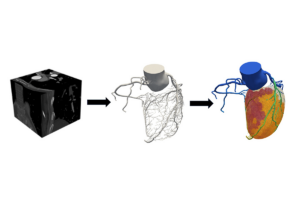AUSTIN, Texas – Requests for abortions increased significantly in Latin American countries that issued warnings to pregnant women about complications associated with Zika virus infection, according to new research from the LBJ School of Public Affairs at The University of Texas at Austin.
Abigail Aiken, an assistant professor at the LBJ School of Public Affairs, looked at abortion requests in 19 Latin American countries through Women on Web (WoW), a nonprofit organization that provides access to abortion medications. Results, which were peer-reviewed and published in the New England Journal of Medicine, provide a look at how concern about Zika virus infection may affect the lives of pregnant women in Latin America, where abortion is often illegal or highly restricted.
“Our results bear witness to women desperate to end their pregnancies,” Aiken said. “Even in the best of times they find it difficult to do so because of restrictions that make obtaining safe, legal abortion through their formal health care systems nearly impossible. But these are difficult times. Women who are pregnant or who might become pregnant do not have full access to clear and accurate information about the risks of Zika virus in pregnancy or safe and legal abortions.”
Study findings include:
- After the Pan American Health Organization (PAHO) issued an alert regarding Zika virus, requests for abortion through WoW increased from 36 percent to 108 percent over baseline trends.
- Among women who are pregnant or who might become pregnant, there is an unmet need both for clear and accurate information about the risks of Zika virus in pregnancy and for safe, legal and accessible abortion.
- Women who contacted WoW for help expressed fear and anxiety because of their governments’ responses to Zika virus.
Researchers caution they may underestimate the effect of the advisories on demand for abortion because many women may have obtained medications from pharmacies, visited an underground local provider, or used an unsafe method to terminate pregnancy.
The study was published online first at http://www.nejm.org/doi/full/10.1056/NEJMc1605389.



